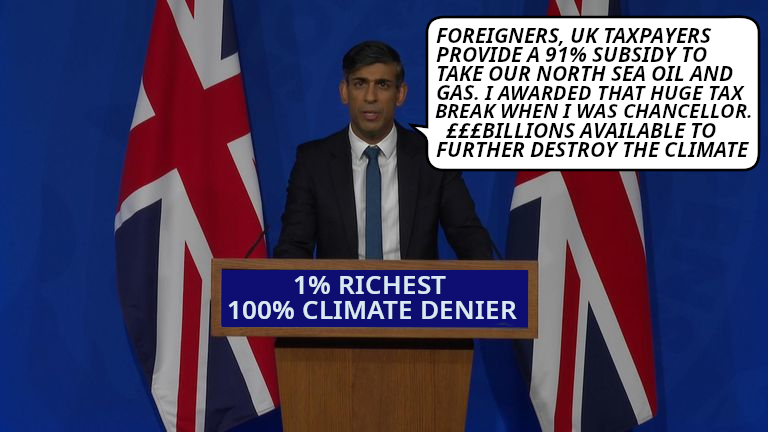With $280 Billion in Profits, Oil Giants Are ‘Main Winners of the War in Ukraine’
Original article by OLIVIA ROSANE republished from Common Dreams under Creative Commons (CC BY-NC-ND 3.0).

“They have amassed untold wealth off the back of death, destruction, and spiraling energy prices,” a Global Witness investigator said of a new analysis.
As Russia’s invasion of Ukraine approaches its second anniversary, one group has clearly benefited: the five biggest U.S. and European oil and gas companies.
BP, Chevron, ExxonMobil, Shell, and TotalEnergies have made more than a quarter of a trillion dollars in profits since the war began, according to an analysis published by Global Witness on Monday.
“This analysis shows that regardless of what happens on the front lines, the fossil fuel majors are the main winners of the war in Ukraine,” Global Witness senior fossil fuels investigator Patrick Galey said in a statement. “They have amassed untold wealth off the back of death, destruction, and spiraling energy prices.”
Big Oil’s profits were fueled in part by high wholesale gas prices, which were already elevated before Russia invaded Ukraine on February 24, 2022 and skyrocketed afterward. All five companies covered by the analysis reported record profits for 2022.
This bonanza came as the conflict killed more than 10,000 Ukrainian civilians.
“Russia’s invasion of Ukraine has been devastating for millions of people, from ordinary Ukrainians living under the shadow of war, to the households across Europe struggling to heat their homes,” Galey said.
During 2022, U.S. President Joe Biden accused Big Oil of “war profiteering.”
Global Witness calculated that BP and Shell have raked in enough since the war began—at £75 billion—to pay all British household electricity bills through July 2025. Chevron and ExxonMobil have made a combined $136 billion while Total has netted $50.4 billion.
These massive profits also come as the climate crisis, driven primarily by the burning of fossil fuels, continues to escalate. 2023 was the hottest year on record, and likely the hottest in 125,000 years. Yet instead of using their record profits to invest in renewable energy technology, the five major oil companies have cut back on their climate initiatives and handed massive payouts to shareholders.
“This is yet another way in which the fossil fuel industry is failing customers and the planet.”
Of the more than $280 billion the five companies have brought in since the war began, they returned what Global Witness said was an “unprecedented” $200 billion to shareholders. At the same time, Shell rescinded a promise to curb oil production by 2030 and said it would fire around 200 people employed by its green jobs division. BP, meanwhile, slashed its emissions reduction target from 35-40% of 2019 levels by 2030 to 20-30%.
The money paid to shareholders is also money that could have been paid to help communities adapt to the climate crisis or recover from the damage it has already caused. The $111 billion that the five companies paid to shareholders in 2023 alone is 158 times more than the money pledged to climate-vulnerable nations at COP28, and the €15 billion that TotalEnergies rewarded shareholders with was more than the €10 billion that France needed to recover from droughts and storms in 2022.
Galey said the companies were now “spending their gains on investor handouts and ever more oil and gas production, which Europe doesn’t need and the climate cannot take.”
“This is yet another way in which the fossil fuel industry is failing customers and the planet,” Galey said.
Original article by OLIVIA ROSANE republished from Common Dreams under Creative Commons (CC BY-NC-ND 3.0).
- Flush With Record Profits, Exxon Sues To Block EU Windfall Tax ›
- ‘Shell Is Richer Because We’re Poorer’: UK Oil Giant Sees Record $40 Billion Profit ›
- Amid Record Pump Prices, Oil Giants Enjoy ‘Sky-High’ $41 Billion Q1 Profits: Report ›
- As Pump Prices Soared, Big Oil CEOs Enjoyed Windfall Pay Days ›
- Poll Shows ‘Incredible’ 80% Of US Voters Support Windfall Tax On Big Oil ›
- Who’s Winning And Losing The Economic War Over Ukraine? ›




